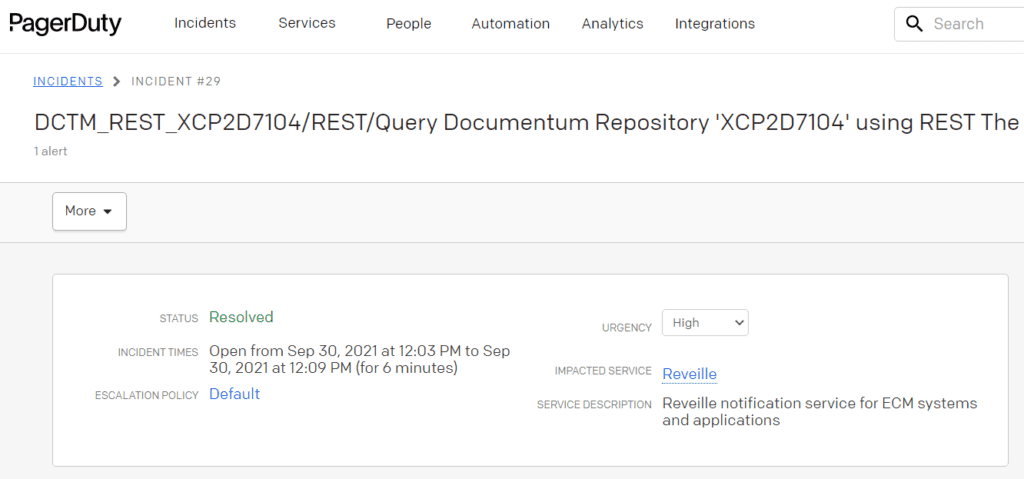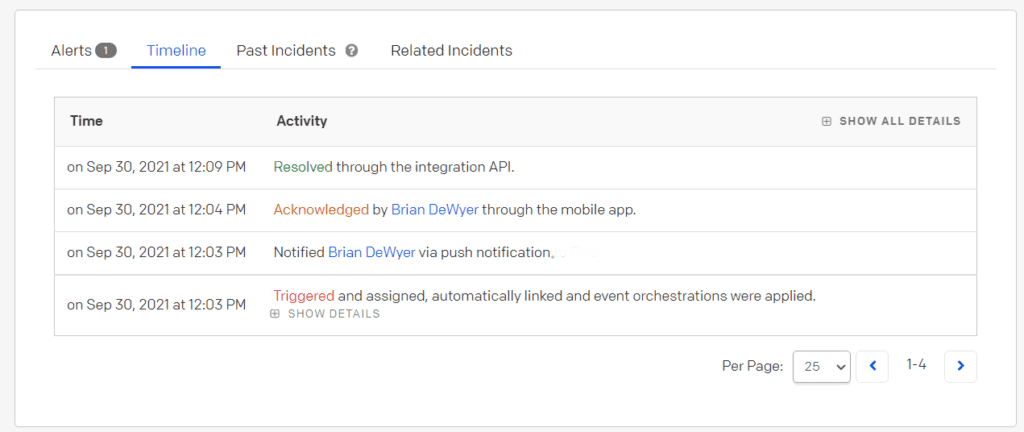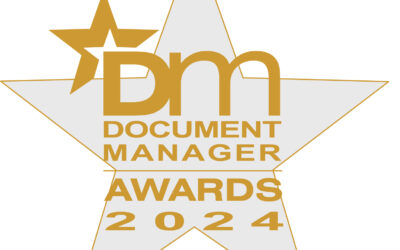Accelerated ECM problem identification and resolution with Reveille’s integration with PagerDuty
Managing sprawling enterprise content applications, along with the data that resides within these applications, has become a growing source of frustration for IT and operations teams. When an issue arises, staff can often spend a good portion of their day tracking down the root cause of a performance or user-behavior issue. The fact that these ECM applications now reside both on-premises and in the cloud — or a combination of the two — has only complicated these efforts.
Reveille customers now have available direct PagerDuty integration to better manage, prioritize and respond to events that might adversely impact ECM application performance — without creating and managing a separate notification environment or event notification administration and workflow. By integrating with Reveille, PagerDuty provides visibility into the business impact of an incident, while supporting an integrated, coordinated business response while keeping stakeholders informed in real-time.
Introducing a new out-of-the box integration with PagerDuty
Today, we are very excited to introduce a new out-of-the-box integration with PagerDuty which was designed to help our customers streamline and automate notifications for any enterprise content applications that Reveille is actively observing and monitoring. By integrating with Reveille, PagerDuty provides visibility into the business impact of an incident, while supporting an integrated, coordinated business response while keeping stakeholders informed in real-time.
With this new integration, Reveille customers can:
- Accelerate Incident Response: When Reveille detects an event, it will automatically be threaded into the customer’s PagerDuty notification workflow for event management and incident response, improving operational efficiencies and accelerating remediation efforts. Reveille can also be configured to automatically push notifications to popular internal collaboration systems such as Slack and Microsoft Teams.
- Improve ECM Gap Visibility: This integration also provides a consolidated and real-time view of both application performance, as well as content access security gaps, enabling overburdened IT operations and security teams to deploy their resources more strategically.
- Reduce Complexity Through Automation: By leveraging bi-directional communication between Reveille and PagerDuty, incident and performance data is continuously and automatically synchronized between systems to minimize the manual logging of incidents by email to further extend the value of your automation initiatives.
- Improve Service Delivery: By closing the information feedback loop, customers can also more efficiently manage their Service Level Agreements (SLAs) to predetermined application performance benchmarks.
Example of how Reveille integrates with PagerDuty
Reveille can send Reveille event information to PagerDuty using the PagerDuty Event API V2 and REST API V2 endpoints. This can be completed by following the below steps.
Summary Of Enablement:
- Create PagerDuty integration key and API key. For details see the Reveille PagerDuty Integration Documentation.
- Create a new PagerDuty Employee entry in the Reveille User Console with appropriate parameters.
- Assign Employee to Reveille On-Call Group or specific monitor test by using the Reveille User Console.
- Verify incident is processed by PagerDuty.

- After Reveille detects the incident is resolved, verify the incident is resolved in PagerDuty incident timeline.

Learn more about Reveille’s integration with PagerDuty
To speak to someone about how you can leverage our new PagerDuty integration contact Reveille.



